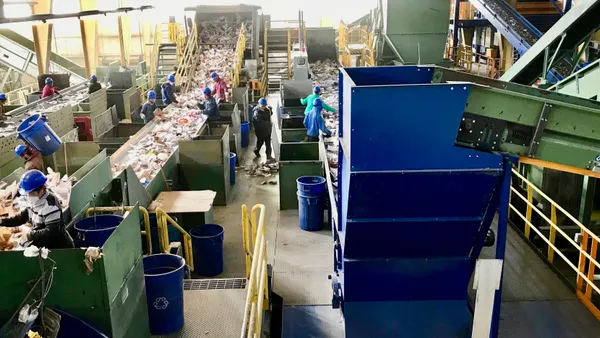Dive Brief:
- A new United Nations Environment Programme report, "Marine Plastic Debris and Microplastics," found that "biodegradable" plastics are not necessarily better for oceans than traditional plastics. According to the report, the plastics don't break down unless in temperatures of 50°C, and they do not float so they aren't exposed to UV rays.
- UN Environment Programme Chief Scientist Jacqueline McGlade told The Guardian that using bioplastics is a "well-intentioned but wrong" solution to the plastic pollution problem. She also warns that biodegradable additives in plastics can be potentially harmful to the environment.
- The United Nations suggests increased waste and recycling collection, especially in developing countries, is the best solution for the world's plastic pollution problem.
Dive Insight:
While scientists have warned about the hazards of ocean pollution for decades, the issue is finally being placed in the spotlight as groups like the UN, Ocean Conservancy, and the Ellen MacArthur Foundation unveil staggering statistics about marine pollution. According to a recent Ellen MacArthur Foundation report, there will be more plastic in the sea than fish, by weight, by 2050.
In this most recent UN report, the authors stated, "There is a moral argument that we should not allow the ocean to become further polluted with plastic waste, and that marine littering should be considered a ‘common concern of humankind.'"
However the only way to consider ocean pollution as a "common concern" is to generate awareness of the problem and get everybody on board to find a solution. This means promoting collaboration between manufacturers, packaging producers, haulers, recyclers, policy makers, and consumers. It also means introducing creative innovations to mitigate the issue — such as the Seabin or ocean waste barriers.









